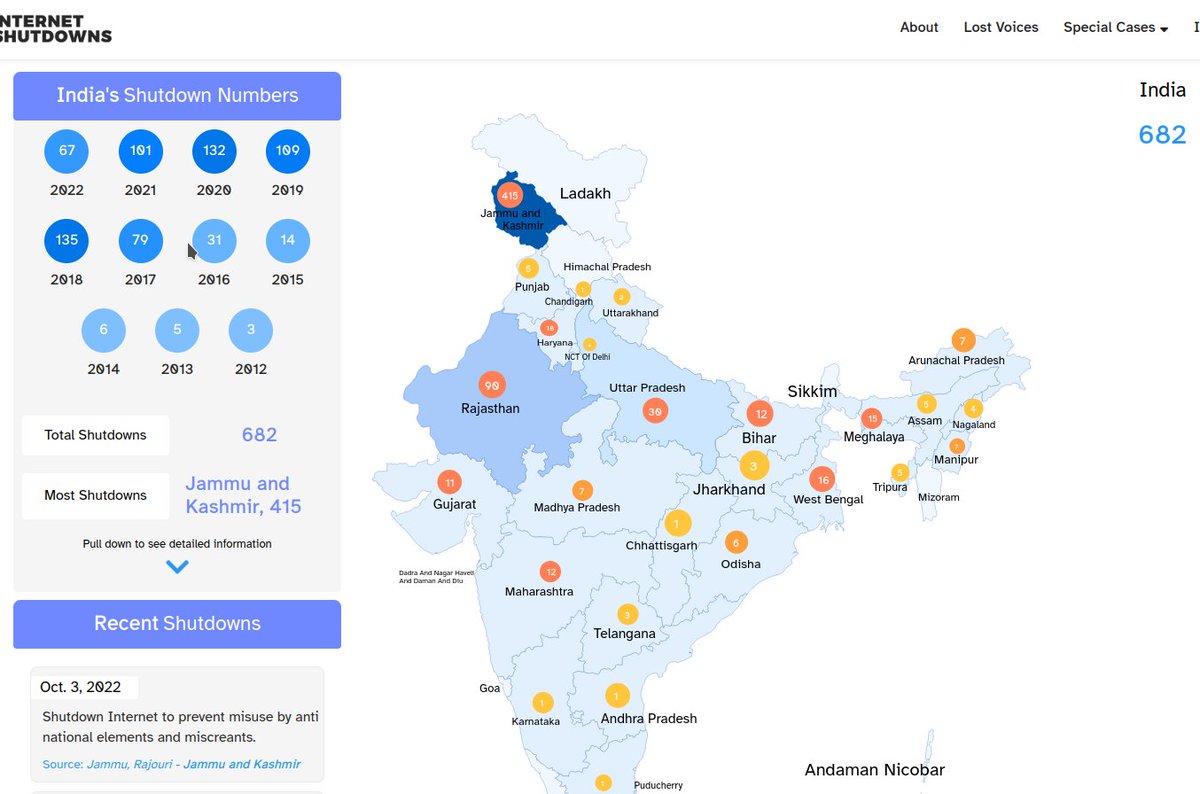
I like how conversations around #InternetShutdowns are becoming more mainstream now. I remember prior to December 2019, there were 2-3 organisations that took notice and that was all.
This is an excerpt from @BShrayana's Desperately Seeking Shah Rukh (Absolutely love it btw) which talks about India being a country of Shutdowns. India has been like this since 2012. 

Noone except @SFLCin through their @NetShutdowns tracker maintained a count. Not many organizations cared. Very few attempts were made to document the impact of these gruesome disruptions happening in remote regions.Not until Delhi Shutdown happened and @nytimes noticed.
It has now started gaining some attention, attention that it should have had in 2018 when the country experienced 135 shutdowns or in 2017 with 79 shutdowns. I myself did not think much of it until 2019 I joined the organization. @SFLCin 

In short, I mean to say that #InternetShutdowns need to be far more mainstream that they were and are currently. It is also small organizations like @SFLCin which keep trying to raise noise about these elephant sized 'unnoticeable' issues till they become mainstream.
• • •
Missing some Tweet in this thread? You can try to
force a refresh




